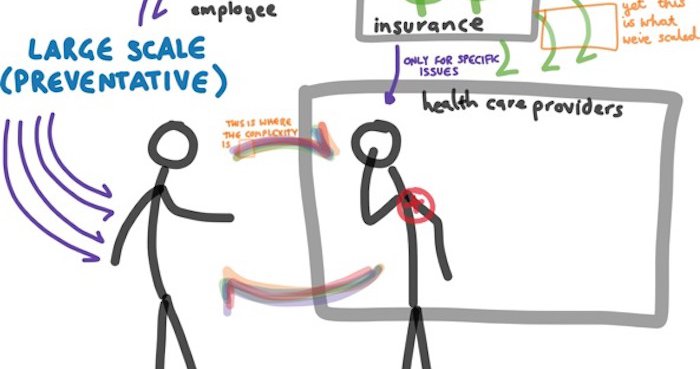
I recently received an email invitation to attend a special meeting of members of the Homerton University Hospital Foundation Trust.
The invitation came from the Trust Secretary but didn’t contain a link to the meeting I was being invited to attend. Instead I was directed to click on a link leading to a second more detailed letter from the same Trust Secretary, which asked me to follow a link to the Council of Governors website page and scroll until I found the registration link.
Why had this been made a little more difficult than it need have been? What was the purpose of the first email, signed by the Trust Secretary – under the umbrella of Civica Election Services (formerly Electoral Reform Services) a subsidiary of Civica Engagement Solutions. CES is a company helping the Homerton Trust, ‘build and support engaged communities’ by providing ‘patient & public engagement software’.
According to Civica’s website, they are the leading provider of patient and public engagement software for the public and health sector in the UK, on whose behalf they ‘securely hold over 2.2 million member and stakeholder records’:
‘Civica Involve, our digital community and stakeholder engagement platform, makes it simple to build beautiful engagement websites, create effective surveys, and analyse real-time data to inform your decision-making and service delivery. Supporting customers across the public sector, our smart engagement platform helps you increase community participation and understand the feedback you receive.
The equation is a simple one: community participation = one-way feedback = data collection and my data as a stakeholding Trust Member has been collected.
***
Civica Engagement’s ‘partners’ include the Patient Experience Network (PEN) and text-analytics platform Pansensic.
Pansensic ‘turns your consumer, employee and society text feedback into data-driven insights for improvement and growth’. They promise Sentiment Analysis and Emotion Analytics. They like the word ‘capture’. According to Pansensic, the ‘NHS’ (no name, no position, no department) had this to say about their service:
‘Very few organisations in the world have the capability to make sense of customer and staff comments in any volume and to be able to use it to drive improvement or innovation. Pansensic has led to an exponential increase in this rich qualitative data collected by the NHS and helped us design better healthcare for our patients’ (NHS)
The not-for-profit, membership-based Patient Experience Network is concerned to help everyone involved ‘in delivering the patient experience’. This includes the NHS, Civica and the inevitable SERCO. Their core activity appears to be selling their PEN approval logo to members for a fee of £10,000.
PEN’s Managing Director, Ruth Evans is an active Twitter user. Her account is more or less a chain of links to articles on telehealth – a term we’re all engaged with in practice now that we have to consult our doctors remotely whether we like it or not. In February Ms Evans tweeted a link to an article posted on the ‘strategy+business’ website. The article, ’Empowerment will be at the heart of the new healthcare experience’, is authored by three employees of PwC, one of the Big Four accounting firms; all three are involved in building its ‘health services arm’. Their opening assertion that patients need to be enabled to take care of the management of their own health leads unsurprisingly and pretty quickly to ‘telemedicine’. Specifically the article focuses on the development of wearable devices capable of relaying information on the likelihood of hospital readmissions – information of considerable interest to insurance companies:
‘Social determinants of health have a significant impact on well-being. For example, a faith-based health system in the midwestern United States is working with a Fortune 500 technology company to factor social determinants of health into determining the likelihood that certain patients discharged from the hospital will be readmitted. These societal influences can help answer basic questions such as:
- Can the patient adhere to what he or she is being asked to do?
- Does the patient live alone or does he or she have a live-in or external support system?
- Is the patient within walking distance of a gym?
- Does the patient have access to healthy food?
The authors go on to envisage a time when a young woman on a ‘pregnancy journey’ might receive ‘push notifications’ or unsolicited personal advice direct to her phone, but it won’t necessarily be medical advice:
‘The pregnancy journey is a promising example of how the empowering healthcare tools that are being developed today might shape the future of the patient and caregiver experience. After a baby is born, the journey continues, after all. Health systems that can evaluate a mother’s online search history, for example, or call up her and her child’s previously recorded health records, could send push notifications to the mother’s mobile phone, reminding her of any tests or health interventions her child might need or alerting her to discounts available on products or services that might be helpful to her.’
***
Civica Group is for accounting purposes known as Camelia Investments 1, whose financial statements for 2020 state they are majority owned by funds managed by Partners Group, a private markets investment manager with $94 billion of assets.
Camelia’s directors include amongst their experience employment at BAE Systems, Goldman Sachs, TSB – and PwC. One of the markets they identify in their 2020 report as of future priority interest is democracy.
The meeting of the Homerton Trust was attended by a record 78 Trust members. They voted down proposals that would have radically reduced the involvement of local people in future decision-making by the Trust’s board, who on this occasion as on every other had their ducks in a row and were expecting a good performance of stakeholder engagement – but had not anticipated mobilisation in defence of non-marketable democracy at a level that would cost them the vote.
This piece was first published in the April edition of Splinters.
